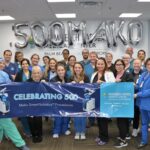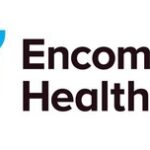.jpg) Telemedicine will never replace the individual touch and care that humans need, yet it will play an increasingly important role in the future due to resource allocation and its ability to deliver unique and specialized care.
Telemedicine will never replace the individual touch and care that humans need, yet it will play an increasingly important role in the future due to resource allocation and its ability to deliver unique and specialized care.
At Holy Cross Hospital in Fort Lauderdale, we are using technology as a more financially responsible way of providing a higher level of care as resources become more precious, while also preparing to meet growing expectations from consumers who are increasingly comfortable with technology.
The following are three examples of how we are leveraging technological advances to expedite expert consultations, decrease delays in critical care situations and provide leading-edge care amid a shortage of specialists.
Teleconsulting
Teleconsulting is an important component of Holy Cross’ collaboration with Massachusetts General Hospital Cancer Center in Boston. When faced with a complicated case, for example, our physicians may digitally send patient information such as tests, scans and health records to specialists at Massachusetts General to review. A subsequent video conference between our two teams, which provides the ability to send and view images as well as pathology slides, fosters a multidisciplinary approach as the patient’s care plan is reviewed. Teleconsulting and teleconferencing allows us to deliver world class care and second opinions to our patients without delay.
Tele-Neurology
That is certainly also the case with tele-neurology. Patients arriving at Holy Cross’ emergency department suffering from acute stroke no longer have to wait for an on-call neurologist to arrive at the hospital before being evaluated.
Holy Cross is the only hospital in Broward County utilizing Neurocall, a computer on wheels that provides remote access through a high definition camera. Through Neurocall’s telemedicine infrastructure, administration and software platform, we have 24/7 access, 365 days a year, to 11 board-certified stroke neurologists, who are also credentialed to practice at Holy Cross Hospital.
Within 15 minutes of arrival in the ER, a Neurocall computer is rolled into the patient’s room. Working collaboratively with the ER physician and nurse, the tele-neurologist has immediate remote access to the patient’s diagnostic imaging records and can assess if the patient is a candidate for the clot buster tPA (tissue plasminogen activator) and whether or not they need immediate endovascular intervention.
The traditional goal from the time the patient arrives in the ER to the time they receive tPA is less than or equal to 60 minutes. Since implementation of Neurocall, that time has been reduced to as quickly as 30 minutes and our stroke center’s tPA utilization has increased from four-to-six percent to 20-to-25 percent.
Remote Genetic Counseling
Holy Cross will launch a new initiative this summer to provide remote genetic counseling to cancer and breast cancer patients. Remote counselling will enable us to offer our patients access to state-of-the-art care, as certified genetic counselors are at a high demand and in short supply due to large pharmaceutical companies luring away experts to fuel their research.
Consider this scenario: after discovering that she has breast cancer, a patient will speak to a certified genetic counselor on the phone who has the ability to conference in six other people, perhaps the patient’s mother and three sisters who all live in different states, to discuss family history. This allows for a more complete family history while also possibly alerting relatives to their own health risks.
While technology continues to advance, many healthcare providers have been stuck in a rigid delivery model. Consumers, on the other hand, have embraced Facetime, Skype and numerous other platforms that deliver immediate connections. They want healthcare provided faster and at a more reasonable rate. As healthcare continues to change at a rapid pace, we must remain nimble and embrace new delivery methods.

























